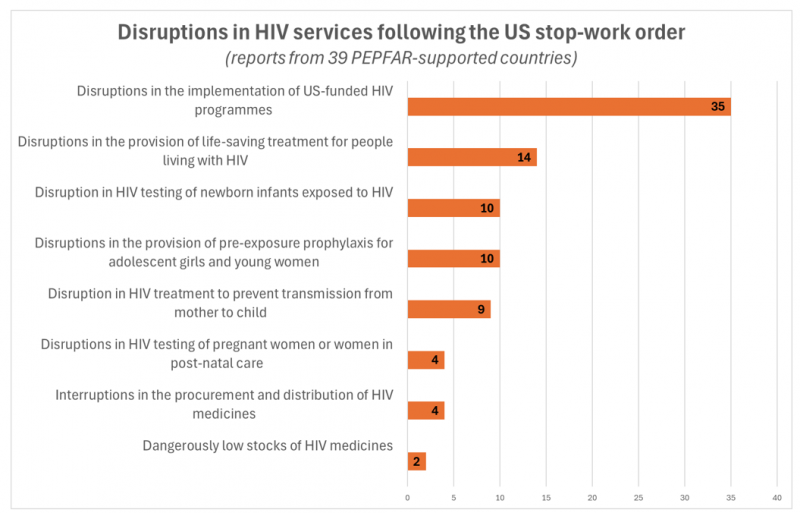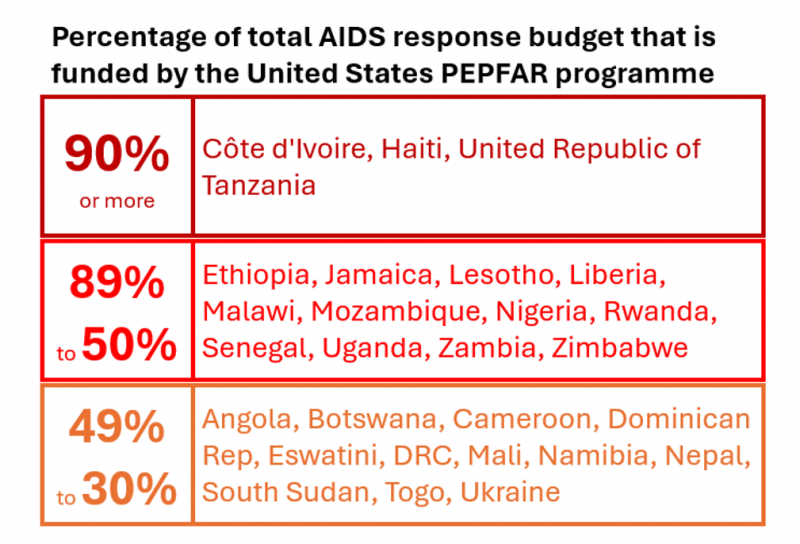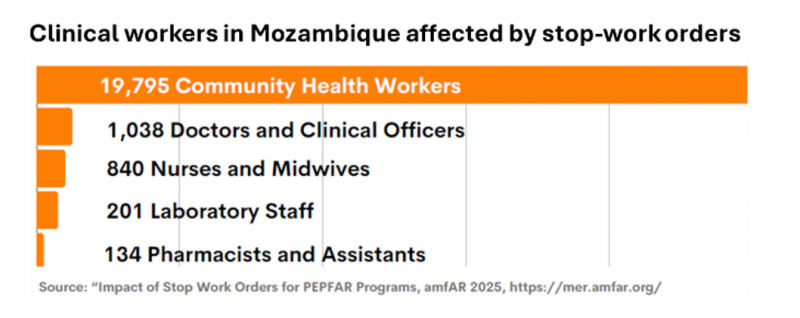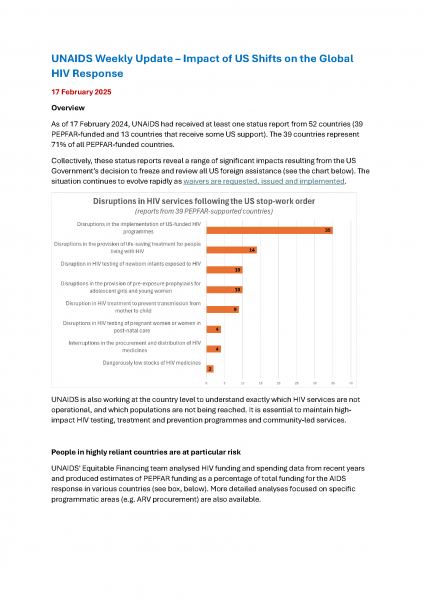
Feature Story
UNAIDS Weekly Update – Impact of US Shifts on the Global HIV Response
18 February 2025
18 February 2025 18 February 2025As of 17 February 2024, UNAIDS had received at least one status report from 52 countries (39 PEPFAR-funded and 13 countries that receive some US support). The 39 countries represent 71% of all PEPFAR-funded countries.
Collectively, these status reports reveal a range of significant impacts resulting from the US Government’s decision to freeze and review all US foreign assistance (see the chart below). The situation continues to evolve rapidly as waivers are requested, issued and implemented.

UNAIDS is also working at the country level to understand exactly which HIV services are not operational, and which populations are not being reached. It is essential to maintain high-impact HIV testing, treatment and prevention programmes and community-led services.
People in highly reliant countries are at particular risk
UNAIDS’ Equitable Financing team analysed HIV funding and spending data from recent years and produced estimates of PEPFAR funding as a percentage of total funding for the AIDS response in various countries (see box, below). More detailed analyses focused on specific programmatic areas (e.g. ARV procurement) are also available.

UNAIDS is offering its funding data and data on health system capacity to triage support to countries as they adapt to disruptions. For countries that are highly reliant on external assistance, particularly from the United States, there may be large numbers of health workers and other critical personnel (e.g. data managers) affected by the stop-work order. The chart below shows that nearly 20,000 health care providers supporting HIV services in Mozambique have received stop-work orders.

This situation is happening elsewhere. For example:
- In South Africa, 15,374 PEPFAR-funded HIV response staff, allocated at national level and across 27 priority districts, have been affected by the stop-work order.
- In Cameroon, 2,332 critical staff, including 258 doctors and nurses, have been affected by the stop-work order.
- In Lesotho, 1,258 health workers working in HIV treatment and providing strategic information to implementing partners received the stop-work order.
UNAIDS Country Offices are working with partners to determine whether waivers (issued after the stop-work order) or the reallocation of national/non-US donor funding have allowed some, or all, of these essential staff to resume work.

